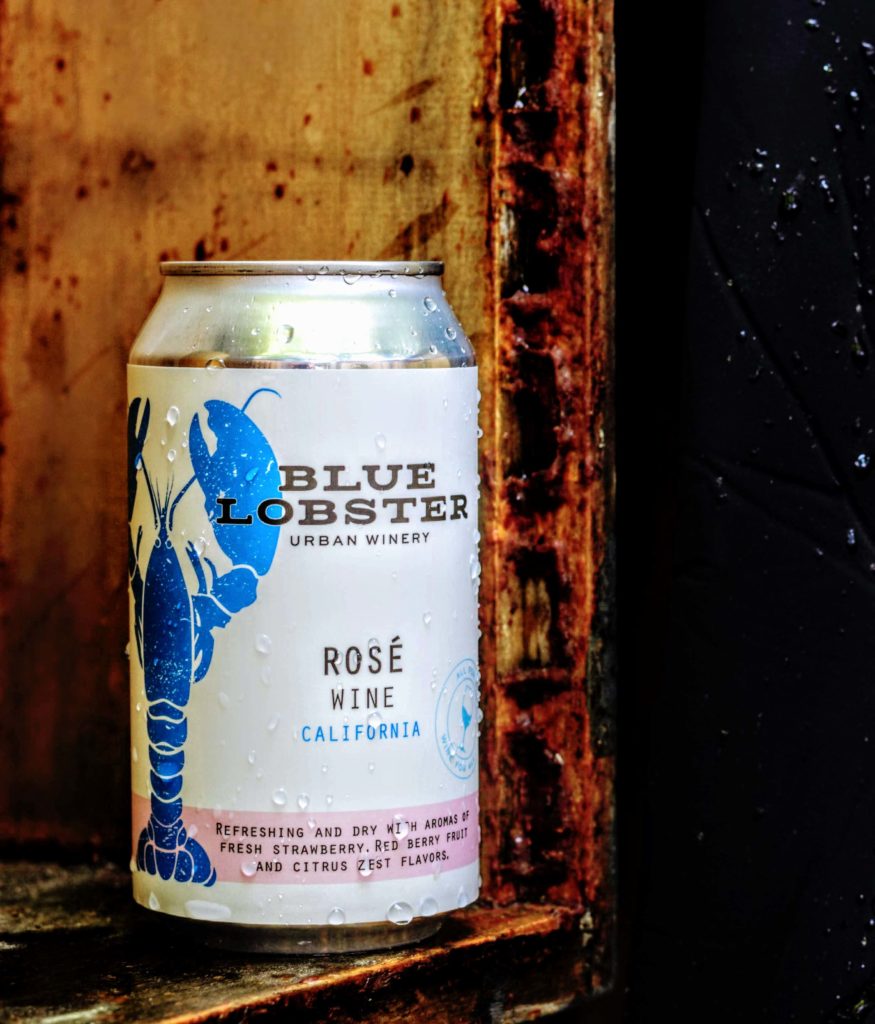Wine Without Fuss
With cans, kegs, and a funky tasting room, Blue Lobster Urban Winery brings wine down-to-earth

Most wine tasting rooms don’t have a disco ball on the ceiling, but Blue Lobster Urban Winery in Portland is not your typical winery. “We want to offer good quality wines, but after that, we’re pretty loose,” says owner Chris Gamble. The tasting room, which opened in April on Anderson Street in East Bayside, has a few other unexpected elements as well, including a slushie machine for frosé and a varnished wooden bar top that used to be a diving board; Gamble found it in his dad’s workshop. A quirky mix of modern and vintage furnishings make the converted warehouse space a relaxed environment for enjoying wines that are equally laid back—delicious, easy-drinking varietals packaged in cans.

“I wanted to prove that you can have good wine in cans,” says Gamble, who left Maine for several years to work in a winery and vineyard before returning to Portland in 2012 with his experience and a plan. “I fell in love with the industry and felt that Portland was the perfect place for an urban winery.” At the time he didn’t see good options for quality wines in cans and felt it was a niche he could fill, taking some of his inspiration from Baxter Brewing Company in Lewiston, which, by canning its beers from the beginning, proved that craft brews did not have be bottled in glass to be appreciated. “We’re not doing it to try to be different; it’s just a smart way of packaging wine,” says Gamble. “The taste isn’t affected at all because the cans are lined, and since so much of life in Maine is about the outdoors, portable, unbreakable, recyclable cans just make sense.”
To source his wines, Gamble works with talented winemakers on the West Coast. Some of the wines are blended and some are aged in oak or stainless steel: “We tinker with them a little bit,” he says. Blue Lobster’s core wines are Bayside Blend, a juicy blend of 40-percent zinfandel, 40-percent merlot, and 20-percent viognier; unoaked chardonnay; and rosé. The labels include the wine’s origin, and Gamble continually looks for the best varietals to bring in. For example, a Monterey, California, chardonnay has recently replaced one from Yakima Valley, Washington. Other varietals include pinot noir, moscato, and a red wine infused with wild blueberries. “It’s a fun, off-dry wine that people seem to be enjoying,” he says.
The company also packages wine in recyclable kegs that don’t have to be returned to the winery—a sustainable, sensible option for restaurants and bars serving wine by the glass. The kegs prevent oxidation, which means the wine stays fresh and tastes as delicious when it goes into the glass as when it went into the keg. “Wine can be seen as kind of a pretentious beverage and we’re trying to remove that pretentiousness,” says Gamble. “We’re a little rough around the edges, but you can count on our wines being smooth.”


